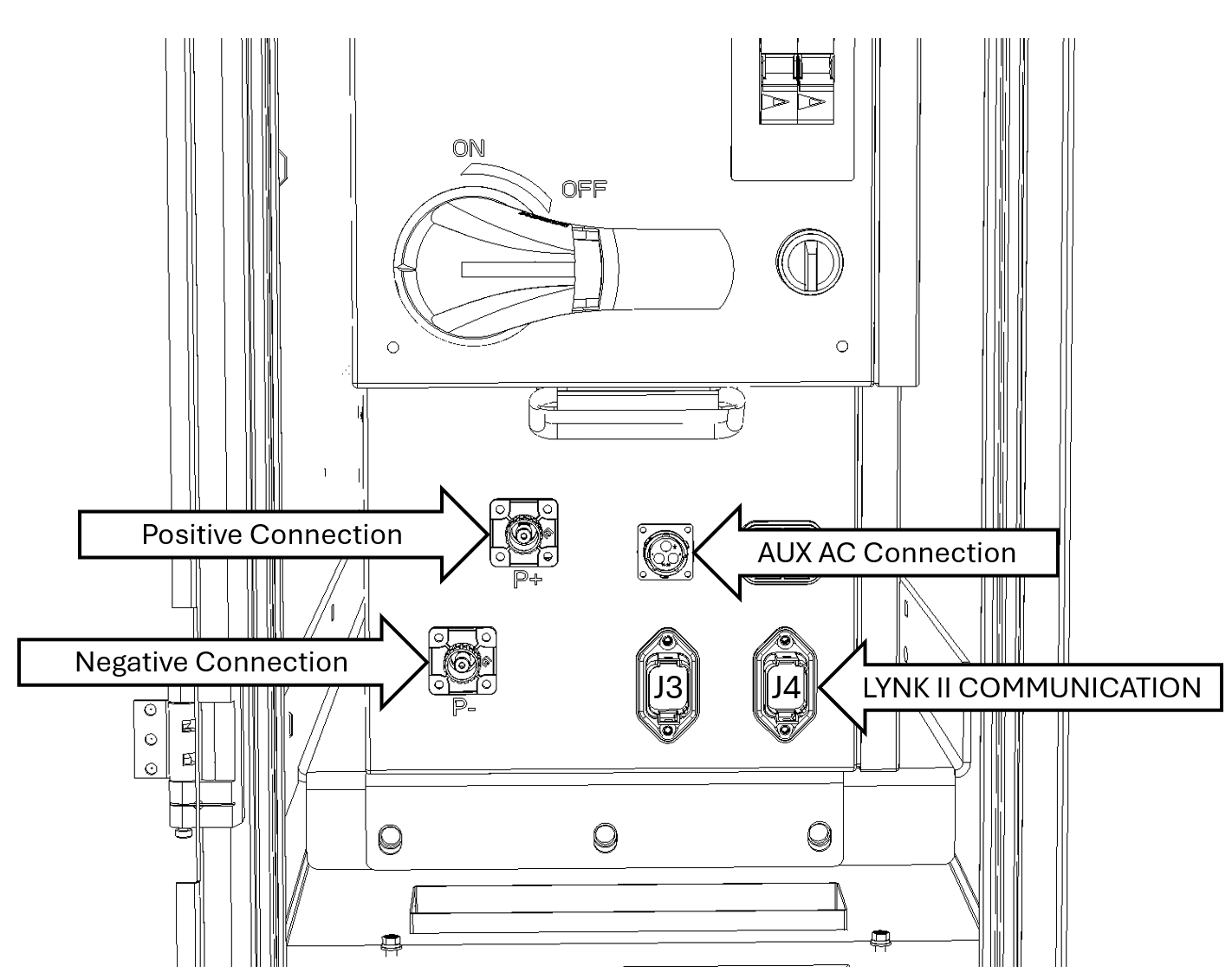Cabinet Wiring Connections
NOTICE |
|---|
DAMAGE DUE TO WATER AND DUST INGRESS
Failure to follow these instructions may result in equipment damage. |

HV Box Connection Points
Connecting Communications to LYNK Gateway
Plug the LYNK II communication cable into either the J3 or J4 port on the HVB. Route and connect the communication cable (RJ45) to the LYNK Port on the LYNK II Communication Gateway.
NOTICE |
|---|
COMMUNICATION NETWORK DAMAGE
Failure to follow this instruction may result in equipment damage. |

AUX AC Input Connection
AC Wiring to AUX AC Port
Terminate the AC input wiring from the source to the AC junction box located at the top of the HV Box.
Terminate the AC input wiring from a 200-275 Vac source (e.g., transformer or other AC power supply) to the AUX AC Wiring Assembly. Plug the AUX AC Wiring Assembly into the AUX AC connection port on the HVB.
|
|---|
ELECTRIC SHOCK AND FIRE HAZARD
Failure to follow these instructions may result in injury. |
Terminate the PCS’s DC Conductors
Route DC Conductors: Run the PCS's DC conductors to the P+/P- terminals on the HV Box.
Crimp & Secure: Crimp and secure the user-supplied battery cable to the battery power plug. Leave sufficient slack to prevent strain.
Polarity Check: Verify that all connections from the high-voltage battery to the PCS are properly terminated with the correct polarity.
Install the shield over the terminals before powering on the system.
NOTICE |
|---|
REVERSE POLARITY DAMAGE Incorrect polarity can cause high-current faults or damage to system components. Failure to follow these instructions may result in equipment damage. |
